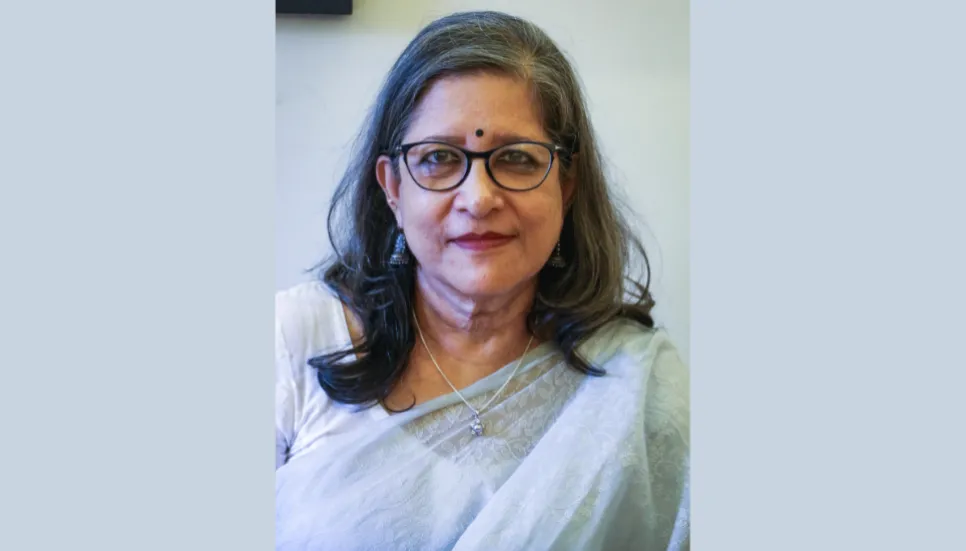
With the establishment of the Warsaw International Mechanism for Loss and Damage at the UNFCCC COP19 (2013) in Poland, there was an outcry for better understanding and conceptualisation of the severity and reality of Loss and Damage to inform international climate negotiations and resilience-building initiatives.
Bangladesh has been actively advocating for mechanisms to address Loss and Damage in international climate negotiations. The specific development of a national mechanism for Loss and Damage would require in-depth understanding of the social and non-economic Loss and Damage caused by the climate crisis.
It calls for a combination of strategies, including keeping abreast with international climate finance mechanisms, disaster risk reduction efforts, and adaptation measures.
We cannot lose sight of the importance of a global framework that holds historical emitters accountable for their contributions to the climate crisis and the impacts on vulnerable countries like Bangladesh.
There is a fundamental need for national governments and communities to understand and appreciate the threats associated with loss and damage.
This will enable us to come up with an assessment methodology for monetary and non-monetary, both social and economic, loss and damage and develop the national mechanism given that the communities have been bearing the brunt of loss and damage.
Women and young people living in poverty or compromised conditions are the most impacted by climate extremities and the climate crisis. ActionAid takes a people-centric approach, thus recognising the agency and leadership of the women and young people without ignoring their vulnerability.
Loss and damage challenge the very existence of communities and human mobility and displacement. Climate change-induced displacement must be a critical part of efforts and limitations to assess and address loss and damage impacts.
As highlighted by IPCC AR6, displacement often occurs when limits to adaptation and resilience are reached. Displacement, typically the result of life-saving decisions made under duress, often perpetuates, and magnifies adverse climate change-related impacts, especially in the absence of preparedness planning and the provision of protections and assistance to displaced people.
In the absence of durable solutions, we find in the slums of Dhaka and other cities displaced communities, therefore. Displacement is one of the most detrimental outcomes of loss and damage, adversely impacting well-being and the enjoyment of fundamental human rights.
Gender-based violence and the insecurity of women and girls escalate and take on a proportion that is detrimental to the communities in vulnerable countries.
Climate change displacement requires to be understood in all its aspects, including cascading and intergenerational impacts on individuals and communities as a result of loss of livelihood, homestead, and child marriage, health both physical and mental. The implications extend to societies and ecosystems.
The right of people to determine their own adaptation futures should be prioritised in all efforts to avert, minimise, and address loss and damage.
It is important to remind all that indigenous people, pastoralists, and groups with special dependency and connection to land, and persons with health challenges or disability may wish to stay where they are because the ability to move is limited for the reasons stated above have the right to choose. Disregarding this surmounts to climate injustice!
It is relevant to understand this when we are considering calculating and reporting loss and damage. Poorly conceived and implemented climate actions can also result in further loss and damage, including displacement.
It is therefore critical to develop the capacity of officials and formal institutions. Simultaneously, develop the capacity of community enabling them to put forward their experiences of actual loss and damage and calculate the impacts, both monetary and non-monetary, and relate to the financial burden that climate crisis has had on different aspects of their social lives.
This will enable the development of a database and baseline of impacts on the community. It will also contribute to the process of strengthening efforts to develop risk assessment and index with the intent to find meaningful solutions at local and national levels.
National Mechanisms that address loss and damage should be accountable and responsive to the needs of displaced people. All such mechanisms should be easy to access, including by people who might face specific challenges to obtaining assistance due to complications related to their displacement (e.g., loss of documentation or physical access barriers).
It is important, therefore, to take the localisation approach and empower local institutions both at the people's level and those of the local government. This requires decentralisation of process as well as investing in local initiatives. In the feminist discourse, it is about shifting the power!
Earlier, in another piece for a national daily, I wrote about the Loss and Damage Fund post CoP 28. Referring to it, I would like to highlight that the requests from affected communities have always been that they want the fund to be easily accessible; money needs to be given to those who are at the frontline of loss and damage.
These communities are fearful of bureaucracy and delays when institutions such as the World Bank, who was given the responsibility of hosting the fund, are involved.
The fund should be managed with community representatives having a seat at the decision-making table, with their voices being heard, including those of women, youth, and persons with disabilities in governance roles, ensuring collective and inclusive processes to claim support and compensation that affected communities are entitled to.
Farah Kabir, the author of this article, is serving as the country director of ActionAid Bangladesh.